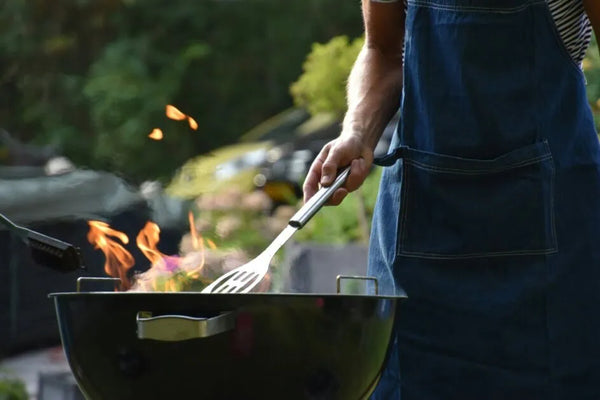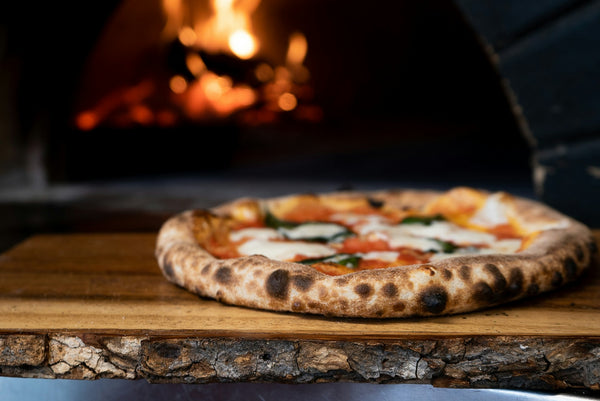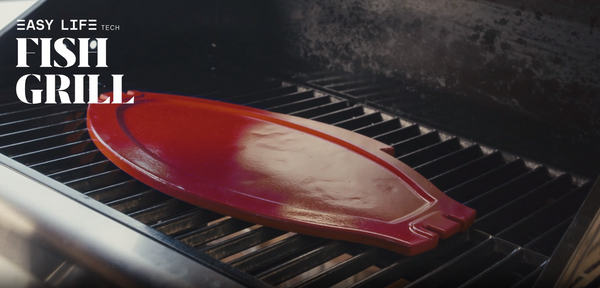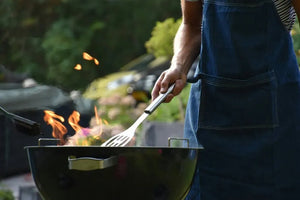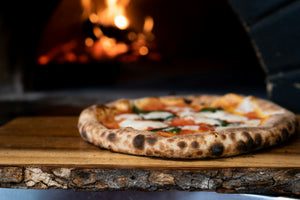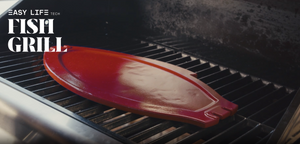
Troubleshooting Common Problems with Ceramic Grill Tiles

Regardless of the occasion, organizing a cookout is a great excuse to reconnect with your family or friends on a weekend or a holiday while enjoying smokey barbecues over a grill. While engaging in conversations, cracking open a cold one and enjoying the outdoors is undeniable.
But the show's main stars are sizzling steaks, mouth-watering burgers, franks, and crunch-worthy skewers. However, embracing the unexpected is crucial - because, let's face it, the unexpected is bound to occur when you encounter anything that ignites flames.
Have you ever found yourself confidently manning a grill or a Ceramic Grill Tiles only to be met with downright high or too-low flames that your precious meats end up burned or undercooked?
We’d hate for you to disappoint your guests. Rest assured, we’re equipped to guide even the most novice grillers through troubleshooting grill problems—and barbecue maintenance tips, ensuring no last-minute take-out orders or empty stomachs that would let down your guests expecting a feast for the gods.
What are Ceramic Grill Tiles?
If you’re here, you’ve probably purchased a Ceramic Grill Tiles to help elevate your grill experience or are interested in exploring a world of better barbeque maintenance.
If you’re new to grilling, you’ll find that gas grills are the most common and popular choice on the market. However, they do have shortcomings. Unfortunately, gas grills struggle to produce the desired smokey flavor in food. they only excel in generating high heat with the risk of scorching your precious barbeques.
Fortunately, Ceramic Grill Tiles are the perfect accessory and solution to solve your BBQ issues while troubleshooting grill problems with your existing gas grill.
While Ceramic Grill Tiles can make you look like the master chef of your peers, they are not just an accessory but a game-changer that can help you man the grill confidently.
They help empower your grill to reach superior temperatures while being economy-friendly and cost-efficient by consuming less fuel. Additionally, cooking with Ceramic Grill Tiles helps your gas grill retain heat for longer, ensuring even cooking throughout your barbeque.
Move over, Gordon Ramsey; with a Ceramic Grill Tiles, you can easily change your status from barbeque enthusiast to grill master!

Cooking with Ceramic Grill Tiles
Cooking with a Ceramic Grill Tiles offers significant benefits while upgrading your gas grill and giving you a more cost-efficient grilling experience. Here’s why!
Effectively Prevents Flare-ups: Ceramic Grill Tiles, equipped with a tray, shield the flames from food drippings, eliminating the risk of flame flare-ups, which makes for easier barbeque maintenance.
Excellent for Searing Meat: Achieve an aesthetically pleasing piece of meat with a beautiful brown color and Instagram-worthy grill marks. These are an absolute necessity for guests and grillers. Ceramic Grill Tiles provide consistent temperatures to accomplish this.
Economical Fuel Usage for Slow Cooking: High temperatures aren't ideal for cooking challenging or thicker cuts of meat. The secret lies in prepping the meat low and slow. Cooking with a Ceramic Grill Tiles allows for maintaining consistent heat, which is essential for slow cooking.
Hassle-free Installation and Replacement: Troubleshooting grill problems has never been a breeze because installing and replacing Ceramic Grill Tiles is hassle-free.
Problem: Excess Black Soot Coating on Food
This common BBQ issue typically arises when the gas/air ratio entering the grill isn't correctly balanced. Consequently, you might find an unwelcomed layer of black soot and unintentional fire hazard signals that could disrupt your neighborhood. The last thing you want is a fire alarm blaring and the fire department knocking on your door to dampen your cookout.
BBQ Troubleshooting Solution:
- Inspect and clean the venturi tubes.
- Check the condition of the grill's burner portholes.
- Remember, most air shutters are pre-set at the factory and not adjustable. Check the air shutters on the grill's venturi tubes to ensure the correct air/gas ratio.
Problem: Your grill isn’t Heating Up
Barbeques universally face a common problem: a grill that ignites but only heats to 200-250 degrees. As per barbequecountry.com, this issue largely stems from a safety leak feature introduced in 1995 to gas grills. Due to this outdated feature, gas grill regulators have flow restrictors that can trip if they detect a gas leak.
This typically happens when the cylinder valve is turned too quickly or if it's activated while the knobs are in the "on" position. To fix these grill issues, It's crucial for those using aftermarket burners to remember that they produce a different amount of heat than the original ones that came with the grill.
BBQ Troubleshooting solution:
- For proper BBQ maintenance, ensure all burner knobs are off. ● Reset the grill by turning off the cylinder valve.
- Remove the regulator from the tank for resetting.
- Reattach the regulator to the tank.
- Gradually open the cylinder valve a quarter turn when starting your grill. Quick turns can cause a pressure surge, activating the flow control safety device.
- Check for any insects or nests obstructing the burner tube. ● Verify the burners are correctly attached to the grill.
Problem: Surge of Flare-ups
Picture this: you’re confidently manning the grill while flipping your hard-earned grilled meats and skewers, and an alarmingly high flame suddenly grazes your eyebrows. Suddenly, you're serving your guests sans eyebrows. An unfortunate scenario indeed. But fear not! If you value your eyebrows or you want to avoid painful burns, it’s important to practice diligent grill maintenance. The culprit of erratic flames lies in the grease build-up either in the gas grill or over from consistent usage.
BBQ Troubleshooting Solution:
- For optimal BBQ troubleshooting, remove any excess marinade from your food items before grilling. This crucial step not only ensures a better grilling experience but also reduces the chances of unexpected flare-ups that could affect the taste of your food and the overall grilling process.
- Take the time to clean your grill meticulously, leaving no corner unchecked. Pay particular attention to the protective guards that cover the burners. A clean grill performs better and extends the longevity of your equipment, ensuring you'll be ready to impress at many more cookouts to come.

Problem: Off-key Humming of the Grill
Have you noticed an odd humming or buzzing sound coming from your grill? Don't panic! This is an entirely regular occurrence and is nothing to be alarmed about. This peculiar humming sound results from the rubber diaphragm inside the regulator vibrating.
While the humming might catch you off guard, it's essential to understand that it's not dangerous. It's a relatively common grill problem that many grill users experience occasionally.
But what causes this humming? Several potential factors can trigger this vibration. These may include changes in humidity, fluctuations in barometric pressure, the level of gas in the tank, and factors in the surrounding air temperature or environment.
BBQ Troubleshooting Solution:
- Check thoroughly for any leaks for effective grill troubleshooting.
- It’s ideal for cooking in warmer weather conditions to facilitate the flow of propane through narrow pathways, reducing vibrations.
- Utilize some of the gas from a full tank.
Problem: Excessive Heat on the Grill
Perfectly seared, impressively grill-marked barbecue is highly attainable. The key is mastering the optimal heat level. Take caution though, when the heat soars too high, it's time to cool down to prevent a charred disaster. Excessive heat is typically a sign of grease build-up.
Damaged parts or faulty regulators can also push the thermometer too high, and an overabundance of tightly packed Ceramic Grill Tiles may generate overwhelming high temperatures.
BBQ Troubleshooting Solution:
- To ensure your barbecue operates at peak performance and can handle high heat, make it a priority to engage in consistent grill maintenance by cleaning the grill and eliminating any grease build-up.
- Adjust some Ceramic Grill Tiles, spacing them slightly apart for optimal heat distribution.
- Proactively inspect your barbecue for damaged or missing parts or regulators, keeping it in prime condition.
Rest assured, these BBQ troubleshooting tips are crafted to resolve your issues with BBQ and Ceramic Grill Tiles. If you persistently face these problems or have applied our troubleshooting tips but still encounter difficulties, our grill enthusiasts and experts are always eager to answer any related BBQ troubleshooting or BBQ maintenance concerns. Please don't hesitate to contact us here if you have any concerns! Happy grilling!

